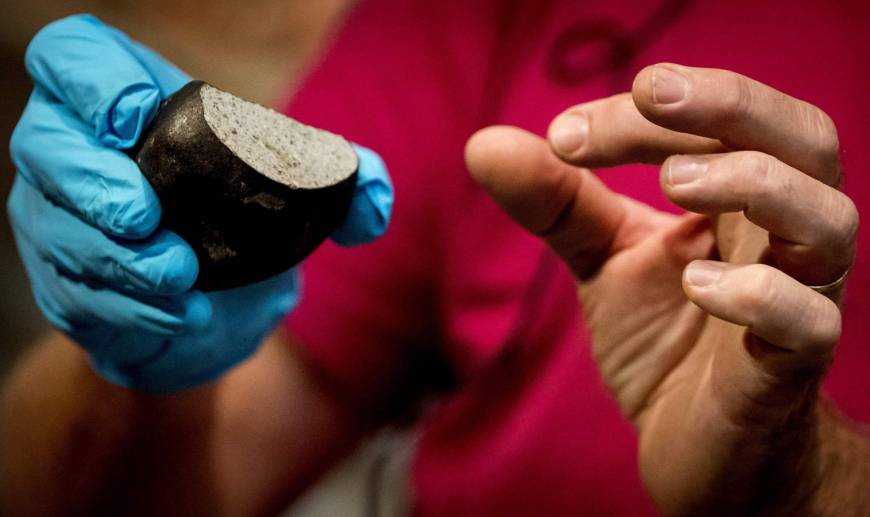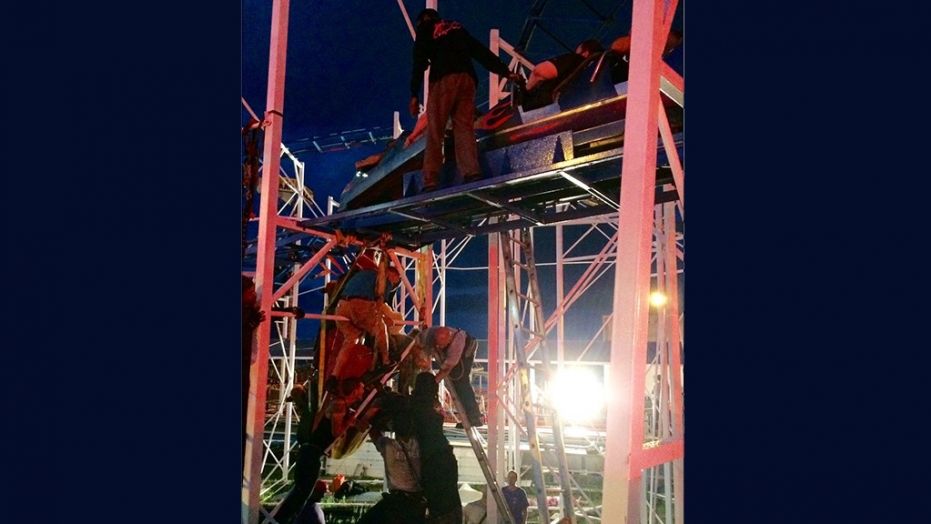
Dutch scientists on Monday celebrated the rare discovery of meteorite in The Netherlands, which at 4.5-billion years old may hold clues to the birth of our solar system.
The meteorite is only the sixth found in the country in the last 200 years, which means it was cause for celebration by scientists there, some of whom released a video Sunday to unveil the rock and explain how excited they were.
Scientists at the Naturalis Biodiversity Centre in Leiden have been studying the rock for months since its discovery to be sure of what they had. They eventually identified it as an L6 chrondite, a type of meteorite that is among the most ordinary found on Earth. It probably came from an asteroid belt between Mars and Jupiter, and is, the scientists said, 4.5 billion years old, or around the same age as the Earth itself.
“We can learn from it what happened in the very beginning of the solar system when you had a stellar cloud that collapsed and minerals started to form, when planetoids started to form for the very first time,” Leo Kriegsman, a geologist, told AFP.
You can also learn, Kriegsman said, what kinds of rocks existed around the time the Earth was formed, since this meteorite is older than any rock currently existing on Earth.













